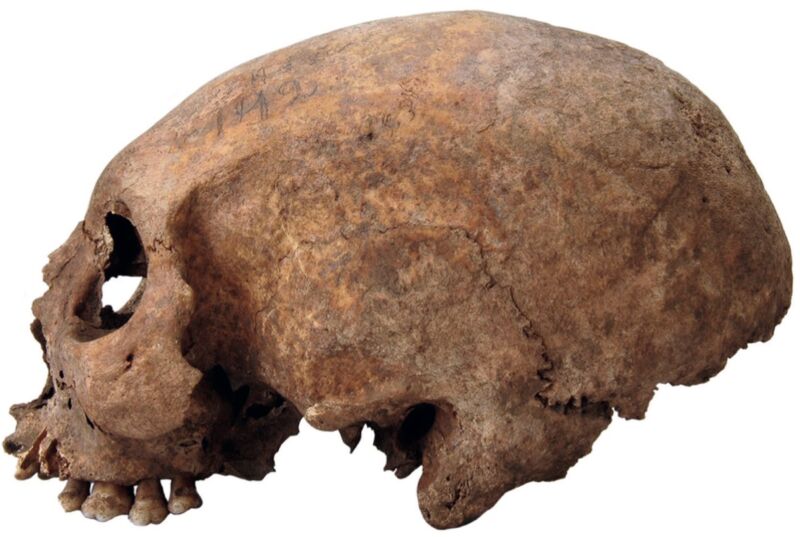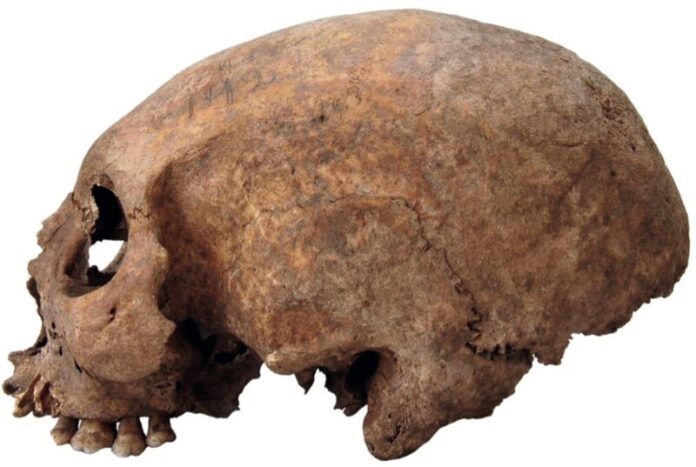
Enlarge / Artificially modified skull from a female Viking individual in Havor, Hablingbo parish, Gotland. (credit: © SHM/Johnny Karlsson 2008-11-05/CC BY 2.5 SE)
German archaeologists discovered that the skulls of three medieval Viking women found on the Swedish island of Gotland in the Baltic Sea showed evidence of an unusual procedure to elongate their skulls. The process gave them an unusual and distinctive appearance, according to a paper published in the journal Current Swedish Archaeology. Along with evidence that the Viking men from the island may have deliberately filed their teeth, the discovery sheds light on the role body modification may have played in Viking culture
When people hear about Viking body modification, they probably think of Viking tattoos, particularly since the History Channel series Vikings popularized that notion. But whether actual Vikings sported tattoos is a matter of considerable debate. There is no mention of tattoos in the few Norse sagas and poetry that have survived, although other unusual physical characteristics are often mentioned, such as scars.
The only real evidence comes from a 10th century travel account by an Arab traveler and trader named Ahmad Ibn Fadlan, whose travel account, Mission to the Volga, describes the Swedish Viking traders ("Rusiyyah") he met in the Middle Volga region of Russia. "They are dark from the tips of their toes right up to their necks—trees, pictures, and the like," Ibn Fadlan wrote. But the precise Arabic translation is unclear, and there is no hard archaeological evidence, since human skin typically doesn't preserve for centuries after a Viking burial.
Read 7 remaining paragraphs | Comments
Ars Technica - All contentContinue reading/original-link]




